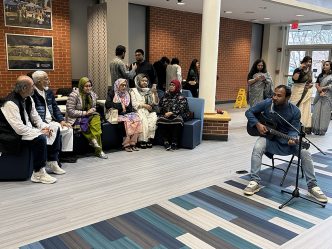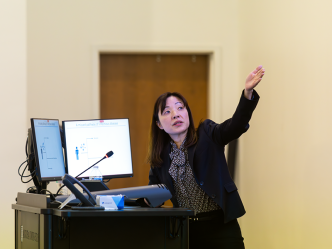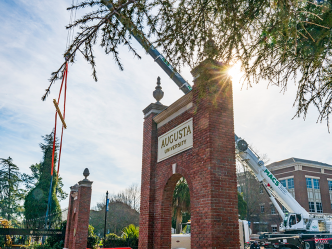Augusta University’s already quality education will be made even more affordable beginning in the fall of 2022, as the Board of Regents of the University System of Georgia voted April 12 to eliminate the Special Institutional Fee (SIF) and to leave tuition rates flat for the 2022-23 academic year, marking the third straight year of no tuition rate increases.
Costs for students will decrease at 25 of Georgia’s 26 public universities and colleges with these changes. Tuition and fees for two semesters (fall and spring) for four-year degrees at Augusta University will total $8,122, down 8% from last year.
“This reduction in student fees makes an already affordable education at Augusta University an even greater value for our students,” said Vice President for Enrollment and Student Affairs Susan Davies, PhD. “While students at other campuses may be experiencing increases in tuition and fees, this reduction makes a significantly positive difference compared to last year for our AU undergraduate students.”
The fee elimination is due to the Georgia State Legislature approving $230 million in the FY 2023 budget during the most recent legislative session. State general funds will replace the SIF for colleges and universities this year.
The USG adopted the fee in 2009 to make up for revenue losses from state budget cuts and to support specific general operating expenses on campuses.
All university system students have paid the Special Institutional Fee at a flat per-semester rate, including part-time students enrolled in five or more credit hours. Graduate students also paid the fee out of their research and teaching stipends.
Also included in the new budget is an increase in HOPE awards at certain schools, bringing the total amount invested in education to $255 million.
Students on the Augusta University Health Sciences Campus receiving assistance from the HOPE scholarship will see an increase of $150 in support, while students on the Summerville Campus will see an increase of $60, which will help an estimated 2,237 students at AU.
Since 2011, HOPE scholarships and grants have covered partial tuition for students. The budget maintains HOPE rates at colleges and universities where the scholarship now covers more than 90% of tuition.
The Georgia Student Finance Commission estimates increasing HOPE awards to 90% of tuition will help about 75,000 students, based on FY 2021 enrollment numbers. This includes more than 32,000 students at technical colleges and almost 43,000 students at six USG schools. HOPE awards at 20 university system colleges and universities were already at least 90% of tuition, and thus these institutions will not be affected by this change.
The HOPE rate change will affect a diverse group of students. About 56% of HOPE recipients in the university system are white, 21% Black, 10% Hispanic/Latin, 7% Asian and 5% multiracial. In the technical college system, 48% are Black, 41% white, 7% Hispanic/Latin, 2% multiracial and 1% Asian.
USG has the third-lowest median in-state tuition and fees for undergraduates at four-year institutions among the 16 states that make up the Southern Regional Education Board, according to the latest data available. The system also averages the 13th-lowest annual tuition and fees in the nation.
“Many of our students and their families have been financially challenged by the impact of the pandemic,” Davies said. “This reduction will be a welcomed relief for them.”
Learn more about becoming an Augusta University student.
 Augusta University
Augusta University




